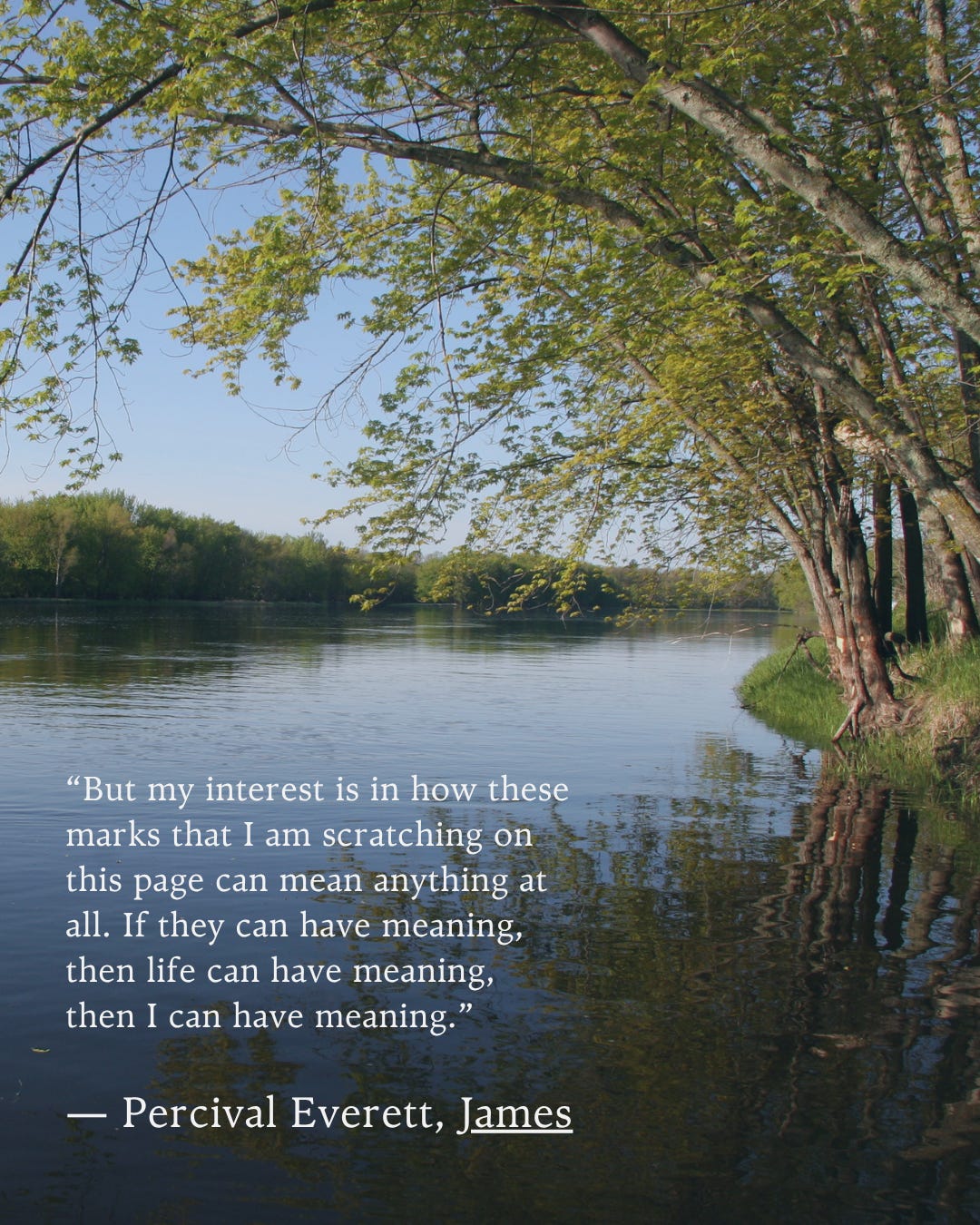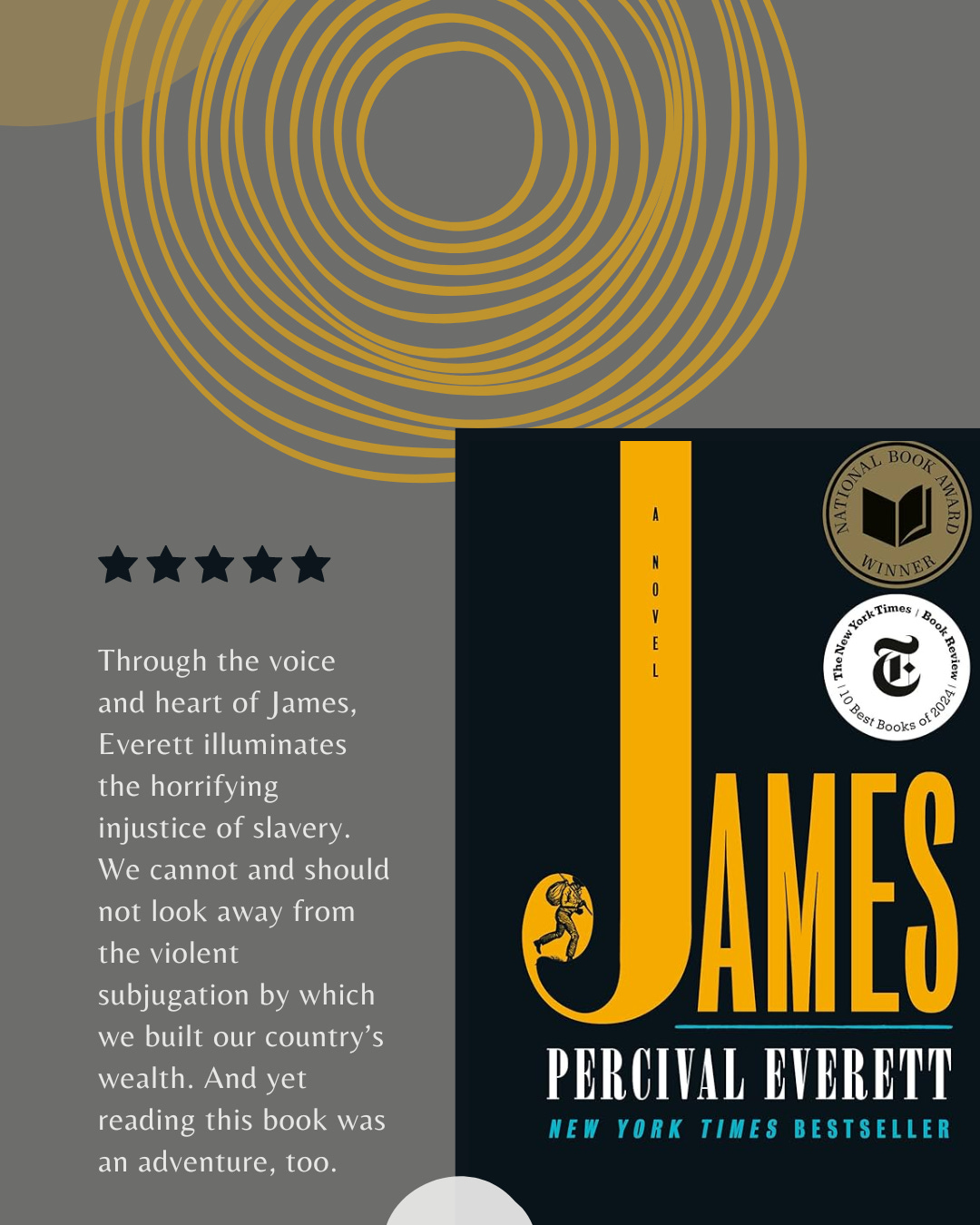A Bad Idea I Can't Seem to Quit
Reading James by Percival Everett, and writing outside the lines.
Six years ago, I received feedback on a short story I’d written in which the protagonist was a Black woman. I recently rummaged through old files to find the exact words, and reading them now, I realize that my memory of the feedback given and the actual feedback are quite different.
What they said: “maybe the thorniest or queasiest issue here is the question of race and its use in the story. Again, I touched on this in the margins, but it’s worth mentioning again here [...] — [the race of the character] has got to be used as completely central to the story, or, if it isn’t, as for anything else in a short story, it’s pretty much got to go.”
What I heard: When you’re thinking about writing a fictional character of another race, don’t. Just don’t do it. It’s a bad idea.
I tucked this golden rule away and complied for the duration of the program without any real intention to listen to the advice when I left. My life has been all the more beautiful for the diversity of my friendships. Why would I whitewash my fiction?
One of the most meaningful and dynamic aspects of the MFA program I attended was the opportunity to learn from and be shaped by writers of color. The topic of White writers depicting characters from marginalized groups came up a lot. The Q&A sessions often generated these kinds of questions and when someone was brave enough to ask, you could feel a collective leaning in from the White folks in the room.
Every time, the responses were brief and basic—
Be respectful. Do your research. Be ready for criticism.
“I felt tired of the failures of men. They were always failing in the most basic ways, like looking down or away at the moment when they should be gutsy enough to meet your eye.”
― Percival Everett, James
Have you read James yet? After the satisfying book pairing of Our Town and Tom Lake, I was eager to re-read The Adventures of Huckleberry Finn ahead of Percival Everett’s brilliant reinterpretation of the story. I started Mark Twain last summer, and then… just… couldn’t keep going with it. Finally, last month I let go of my own prerequisite and dove in head-first to James.
It found me at just the right time—the time when I was finishing the latest round of edits on my novel so that I could hand it off to a sensitivity reader. You see, I have broken the rule I imagined I’d heard. I have written Black characters into my novel, and I love them fiercely.
I am surprised to find, now that I re-read the feedback, that I actually adhered to the advice given six years ago. The race of my characters is central to the story. And yet, even with my best efforts at respect and years of deep listening and wide reading from Black voices, I do expect to receive criticism. I’m welcoming criticism at this stage. In fact, I am paying for it.
“If you're not making mistakes, you're not learning.”
― Percival Everett, James
Through the voice and heart of James, Everett illuminates the horrifying injustice of slavery. We cannot and should not look away from the violent subjugation by which we built our country’s wealth. And yet reading this book was an adventure, too.
The following blurb by the writer Hernan Diaz describes the impact of the book better than I ever could.
"Percival Everett is a giant of American letters, and James is a canon-shatteringly great book. Unforgiving and compassionate, beautiful and brutal, a tragedy and a farce, this brilliant novel rewrites literary history to let us hear the voices it has long suppressed.”
The voices long suppressed.
I needed to read this book when I did. I needed to remember the power of fiction to elicit transformative empathy, self-reflection, and courage. The works of Percival Everett and James McBride, Toni Morrison and Nikki Giovanni, Sandra Cisneros and Gabriel Garcia Marquez have saturated my mind and heart, and I am grateful for it.
Should their influence not shine through my characters as well?





I recently read James, and I want to talk about it! I thought it was amazing too, but the ending…? Hmmm. I’m trying to decide how I feel about it. Maybe we need a Voxer thread. 😆